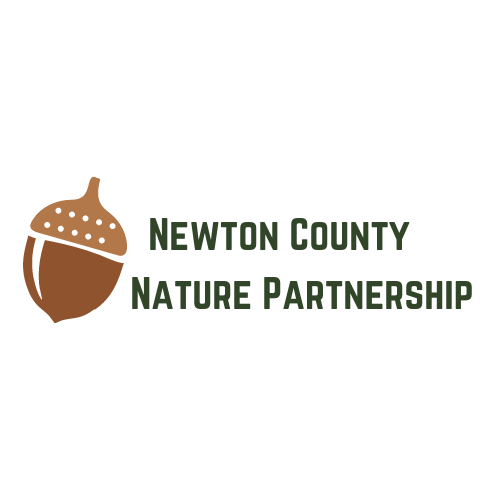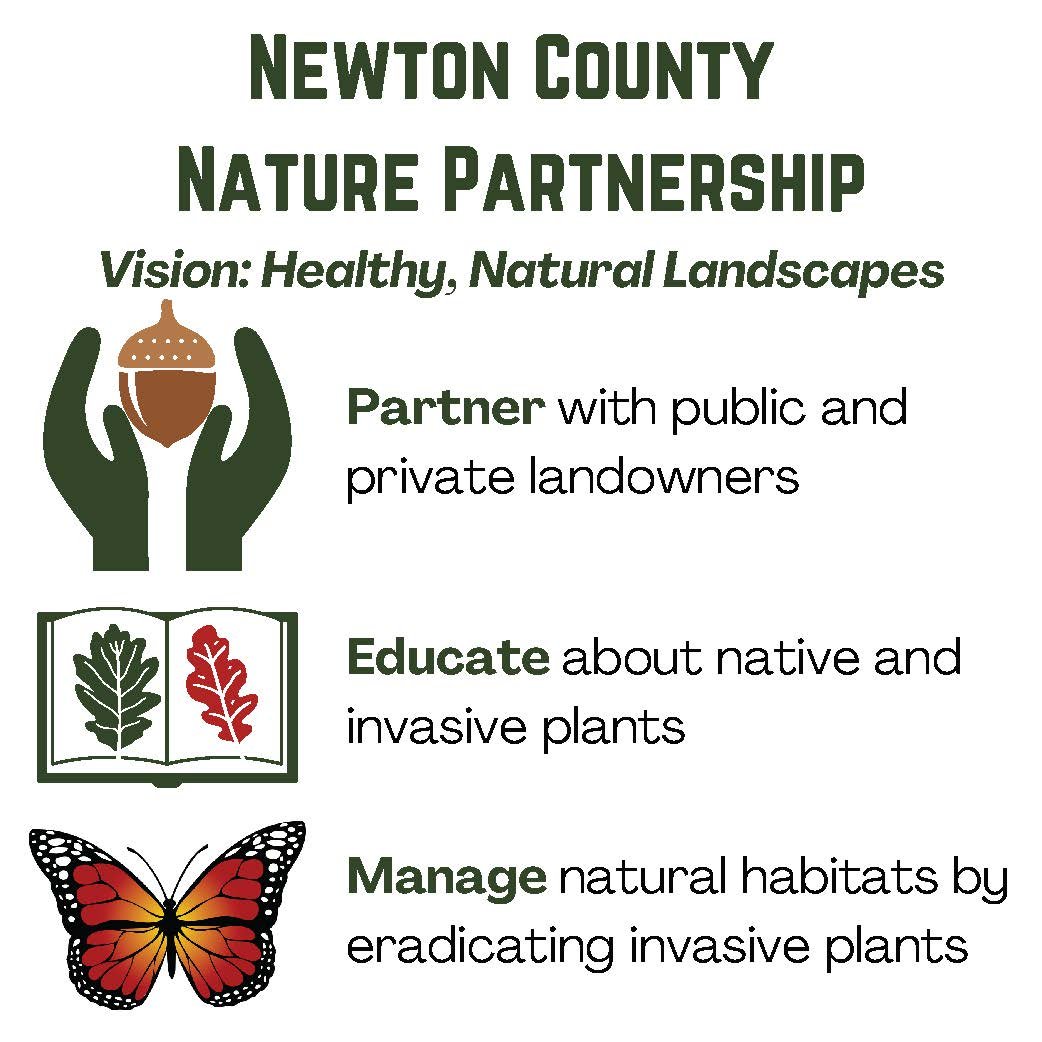Indiana CISMA Highlight: Newton County Nature Partnership!
SICIM Email
By: Mandi Glanz
Cooperative Invasive Species Management Areas (CISMAs) are grassroots organizations that build partnerships to promote conservation and collectively combat the problem of invasive plant species on a local level. Newton County, Indiana held their first CISMA Meeting in February of 2021. Since then, this group has partnered with organizations such as Friends of the Sands, Indiana Department of Natural Resources (DNR), Newton County Park Board, Newton County Public Library, Newton County Soil and Water Conservation District (SWCD), Purdue Extension, The Nature Conservancy (TNC), and other public and private landowners. President of Friends of the Sands, Jeanette Jaskula, states, "Friends of the Sands is excited about partnering with NCNP. We're looking forward to getting our hands dirty removing invasive plants, meeting new people in the community, and getting people thrilled about nature!"
The Newton County CISMA has made huge organizational strides including finalizing their name and mission statement. The CISMA name is Newton County Nature Partnership (NCNP). Developing a mission statement is vital, as it outlines the CISMA’s role within their community and highlights their main objectives. After thorough discussion, the NCNP finalized their mission statement: “We promote healthy, natural landscapes in our communities by partnering with public and private landowners in Newton County to provide education about and facilitate eradication of non-native invasive plants”. They also finalized a logo and vision board (see images above) and launched a Facebook page. NCNP recently established a chair, Gus Nyberg, and a secretary, Jeanette Jaskula, and they are in the process of finalizing a steering committee. Gus Nyberg explains, “The Newton County Nature Partnership has a great professional core of people engaged in the work of invasive species management and is fortunate to have a private citizen volunteer base that will help impact the wonderful 20,000 + acres of natural lands of Newton County and the private lands as well. I am looking forward to chairing the effort, as I have high hopes that the NCNP will be a great vehicle to keep the conversation going regarding the impact and finding solutions to invasive species for the benefit of native plant communities.”
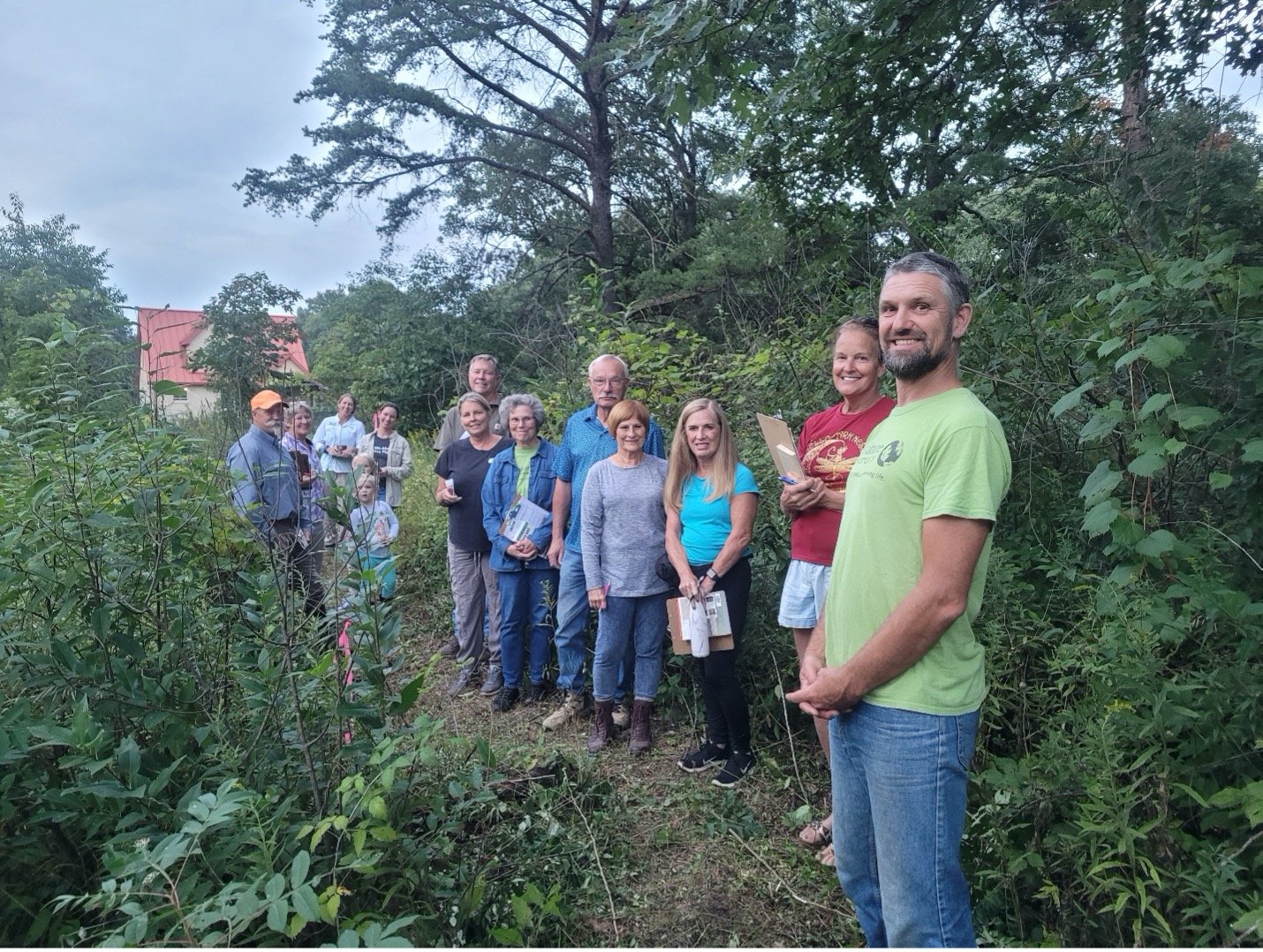
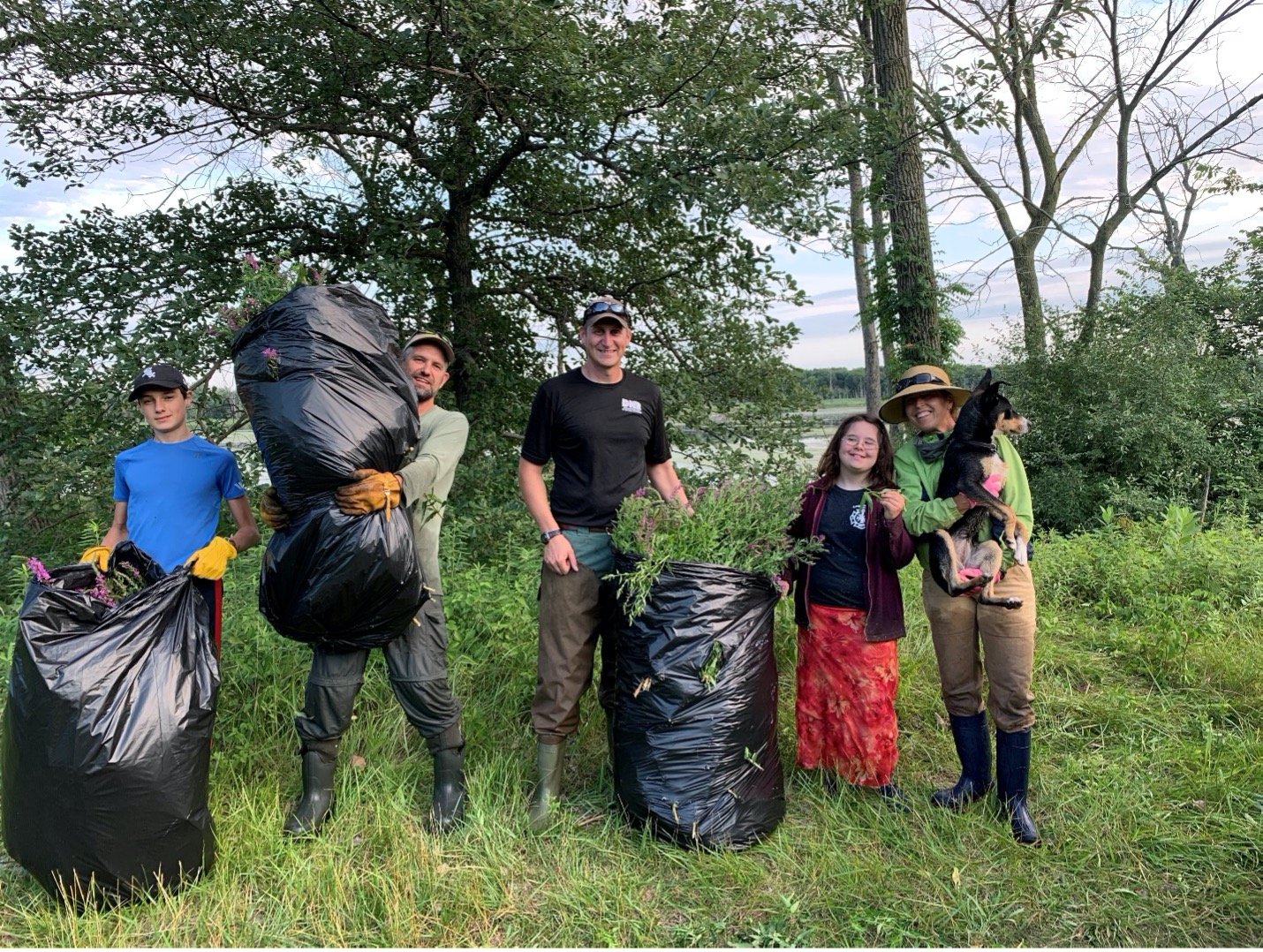
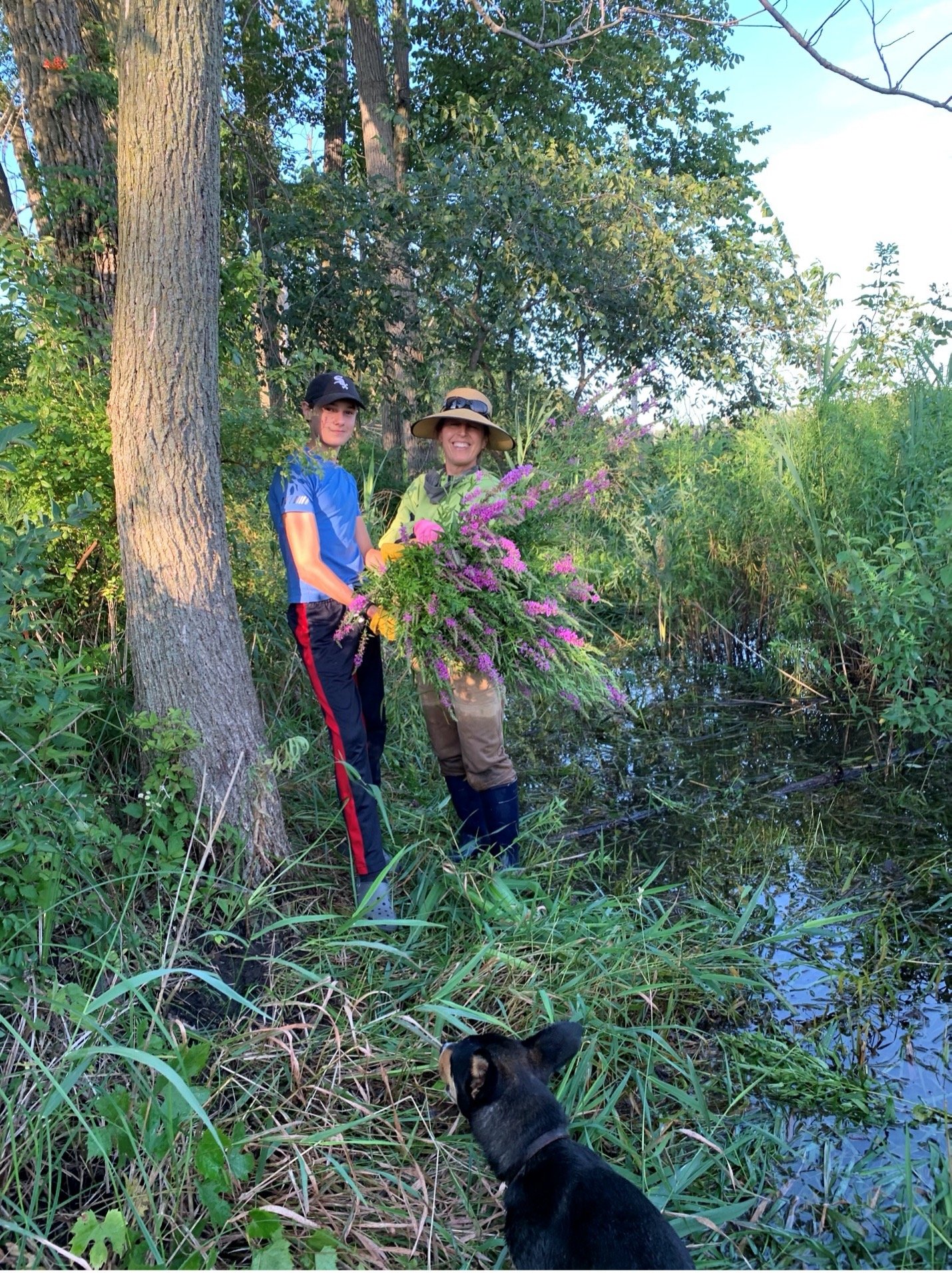
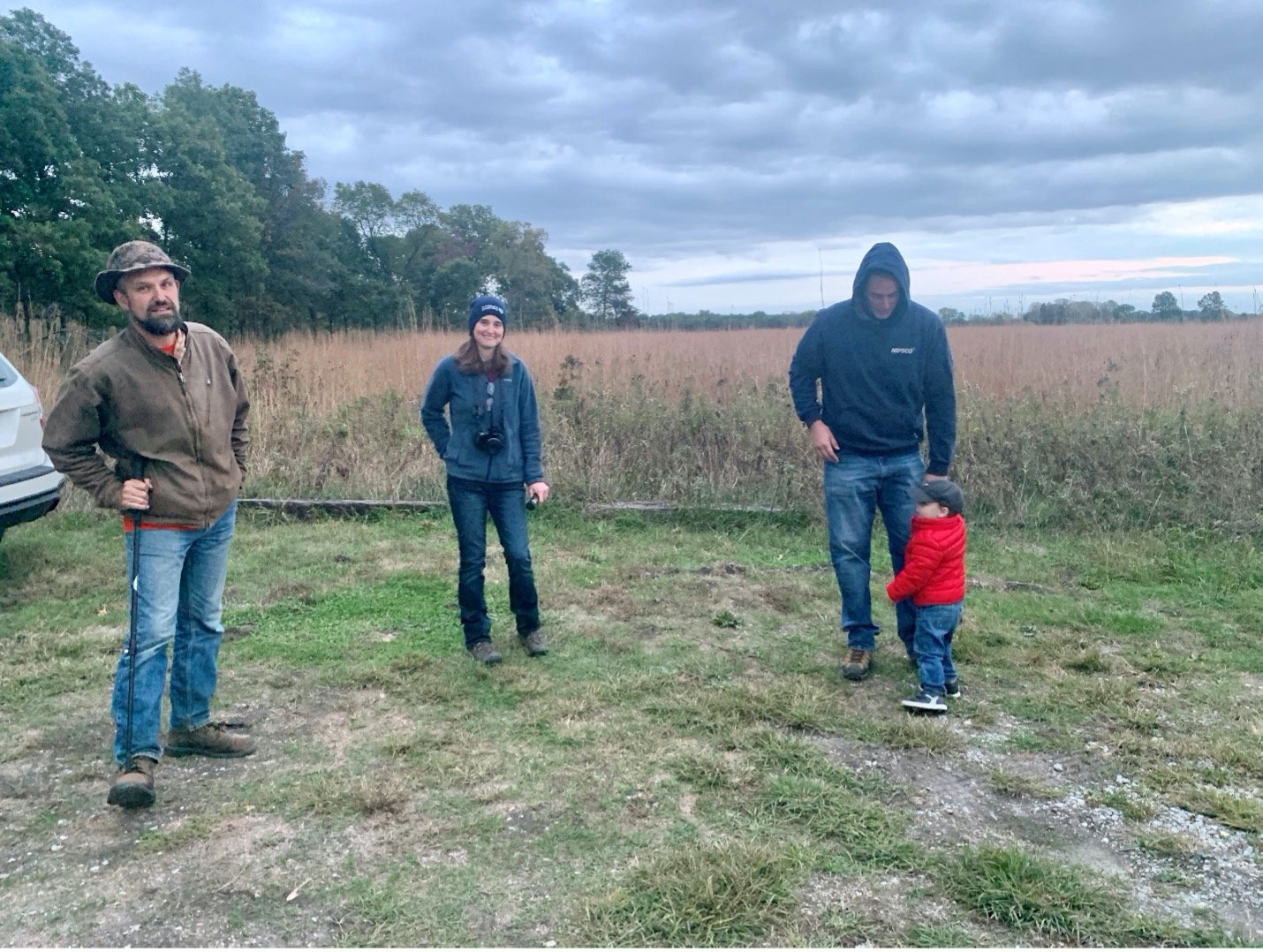
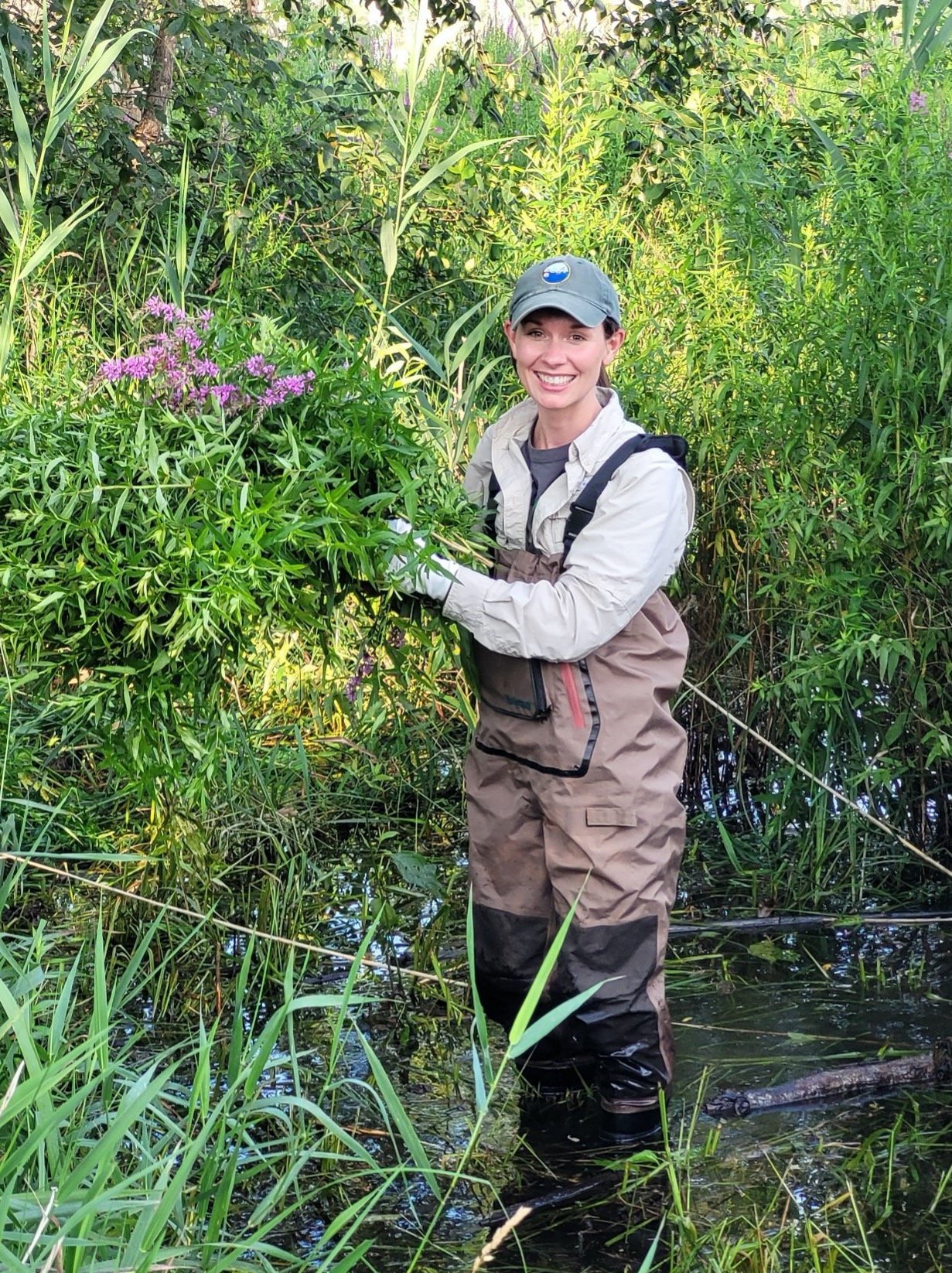
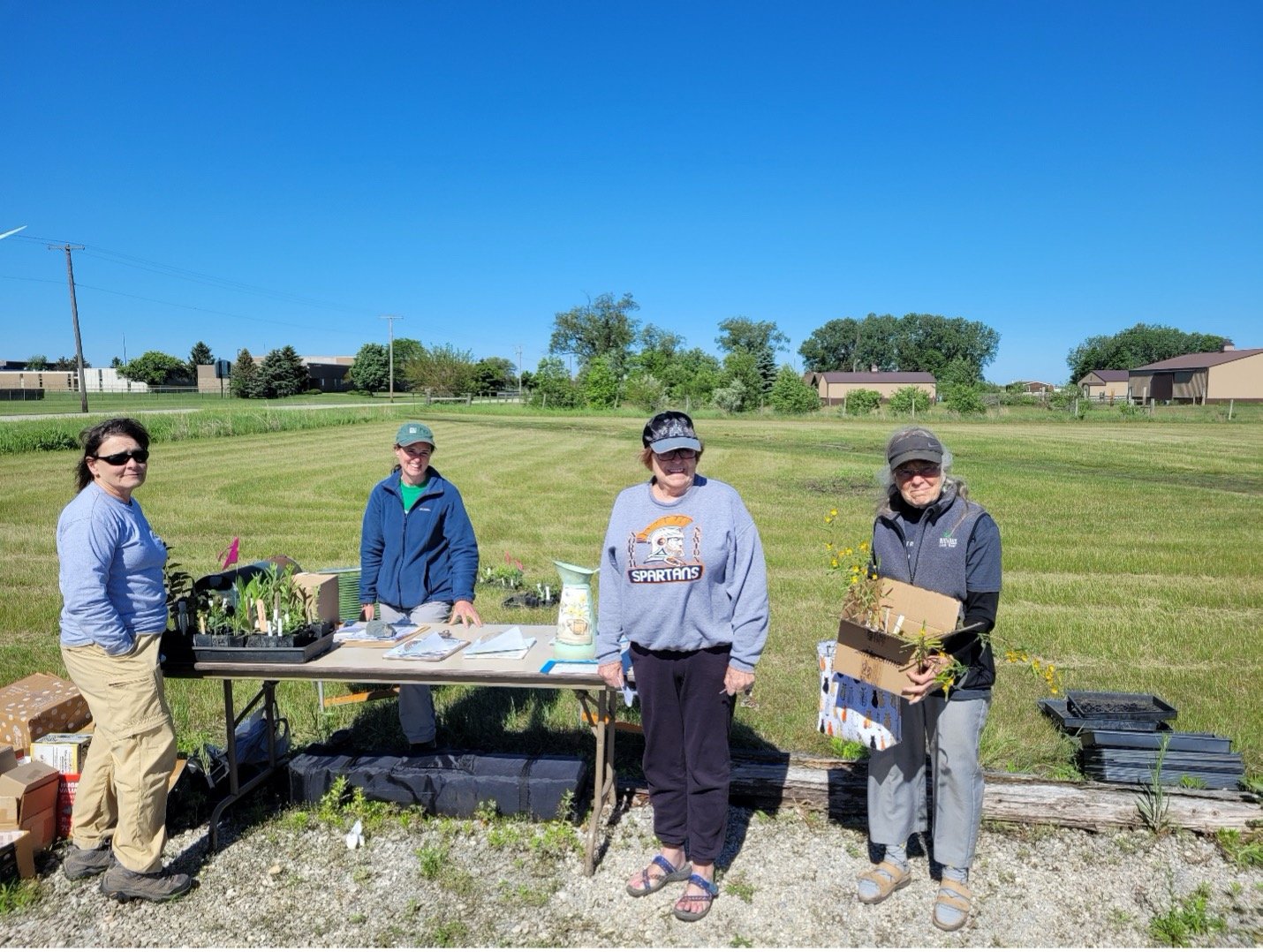
Throughout 2021, NCNP attended local events such as Newton County Woodland Walks and Talks, Earth Night at the Newton County Fair, and an educational hike called Conrad by Moonlight where attendees learned about the history of Conrad Station Savanna and observed moths. After the event, two-year-old hiker, Eli Glanz, beamed, “I love moths!” In addition, NCNP helped DNR plan Newton County’s first Weed Wrangle® at LaSalle Fish and Wildlife Area; volunteers enjoyed learning how to identify and manage invasive purple loosestrife (Lythrum salicaria). Seventeen-year-old volunteer, Savanna Nyberg, states, “It was fun, and I liked removing the plants to help animals, like the herons, bald eagles and otters.” NCNP is currently planning their 2022 schedule to assist partners with Weed Wrangle® events, invasive plant workdays, a Native Plant Sale, and other family-friendly activities!
“I felt the Weed Wrangle was time well spent for the good of the planet”
NCNP continues to partner with SICIM and Newton County SWCD on free landowner surveys provided through the Indiana Invasives Initiative (III) project. We teach residents how to identify invasive plant species, then we create invasive species management plans specific to the landowners’ property goals. In 2021, twelve landowner surveys encompassing approximately 118 acres were conducted in Newton County. Bri Styck with Newton County SWCD states, “We look forward to meeting and helping more Newton County residents. We would love to take a walk around your property or share a cup of coffee and talk about your property goals. We are here to help!”
To learn more about NCNP check out their Facebook page https://www.facebook.com/Newton-County-Nature-Partnership-Indiana-104399368812970. To find an Indiana CISMA near you, visit www.sicim.info/cismas.
